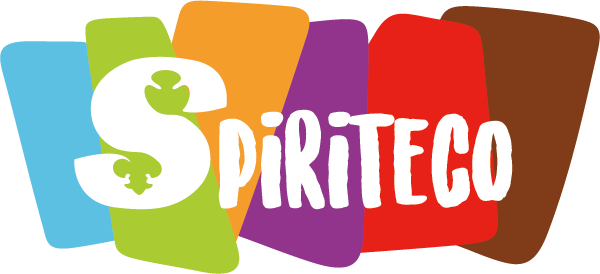Spiritual development objectives:
- Enrich and structure one’s value system by finding and analysing stereotypes, images and prejudices that we have built up,
- Understand how stereotypes work,
- Generate creativity and spontaneity in a group.
Activity guidelines
Set up teams of 3 to 4 people. Call one person from each team and show them a word. All drawers go back to their group and try to draw the word. It is not allowed to draw numbers, flags or currencies (as it would be too easy), nor is it allowed to write words or talk unless it is to confirm that the answer is correct. The other members of the group try to guess what the drawing represents without asking any question.
The first team to find the word announces it and scores one point. A new drawer from each team goes to the leader to receive a new word.
Once all the words have been drawn, the leader asks the groups to write down the corresponding words under each of their drawings, whether these are finished or not. All drawings are then displayed for the participants to compare them, discuss the differences in interpretation and the different images associated to words.
The leader will then organise a debriefing session. This activity should indeed not be limited to drawings. The groups need to think about the risks related to stereotypes and the reasons behind the images we have of others.
Start by asking the participants if they found this activity difficult and why. Then, ask them to observe the displayed drawings and compare the various images associated to the words. Ask if the participants feel that the images correspond to the reality and question the drawers on their choice of images to illustrate the words.
The group can then discuss the nature of the images:
“Are they positive or negative?”
“What effect do they have on our relationship with the people concerned?”
… and about the origin of stereotypes : The role of the media, our education, our family, the group…
Comments
Suggestions of words: Racism, difference, discrimination, anti-Semitism, refugee, conflict, European, national, farmer, poverty, Muslim, homosexual, equality, HIV positive, gypsy, Japanese, Russian, African, Arab, human rights, American, media, tourist, foreigner, solidarity, blind, love …
Note: We would suggest that you include the name of a less known community (I.e. the habitants of Slovenia, Moldavia, San Marino…) to show that we seldom have stereotypes about people we have little contact with.
During the debriefing sessions: Avoid judging the participants’ stereotypes.
The evaluation and the discussion must contribute to the understanding of stereotypes: ideas that have little to do with reality.
With cubs, the activity will not be approached with the same depth. It is however possible to get the children to express their views on the meaning of a stereotype and on the possible consequences that it might have in their relationship with others.
Material
A list of words to illustrate, a board and a marker to write down the scores, sheets of paper and pens for the drawings, tape or pins to display the drawings of the groups.
Source
AnimerSpi - Scouts et Guides Pluralistes de Belgique
BRANDER P. et al., Educational kit All different All equal Education pack: ideas, resources, methods and activities for informal intercultural education with young people and adults, Strasburg : European Youth Centre, 1995 (© Council of Europe)




